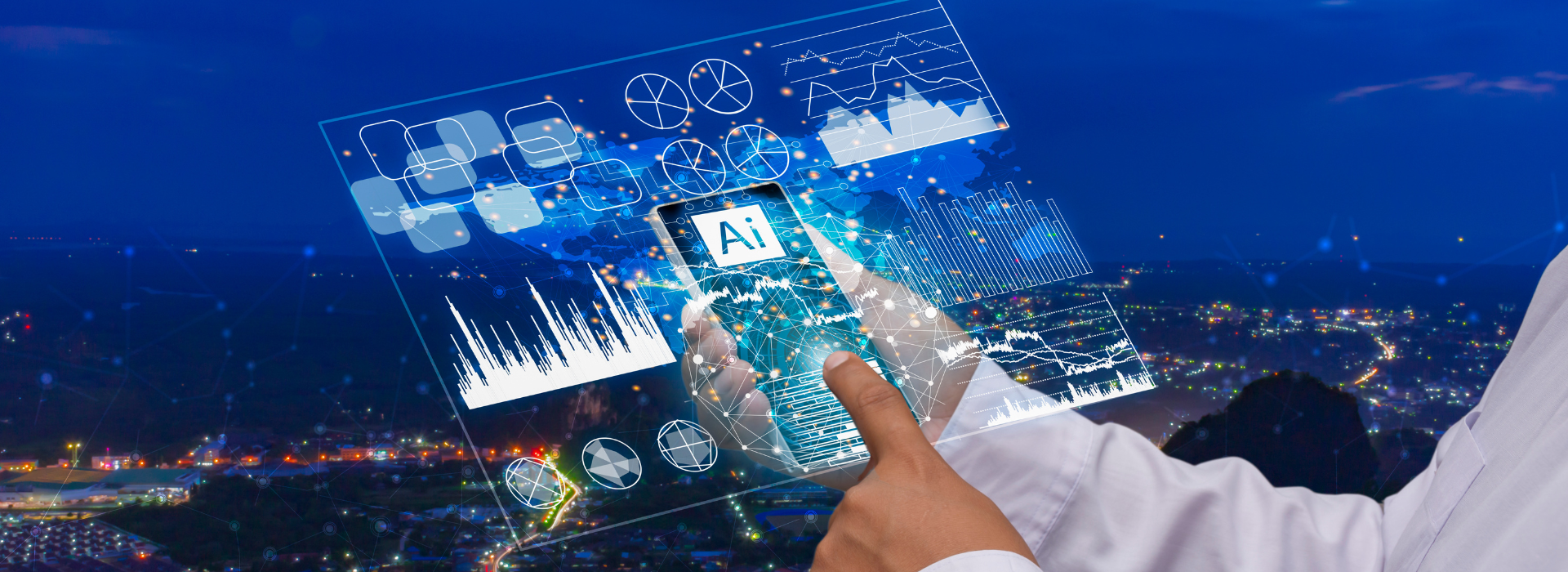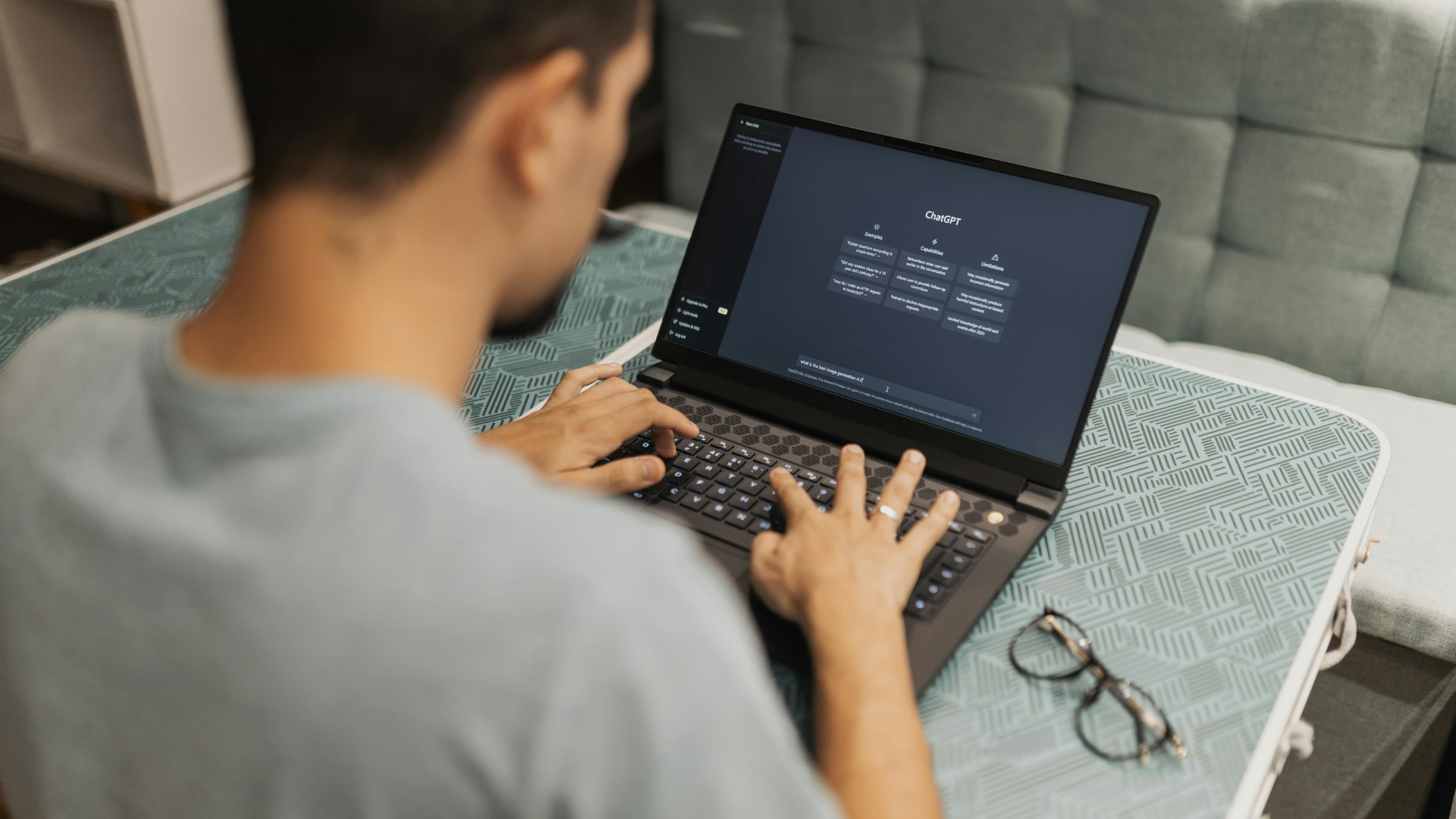Is AI permanently changing the job market?
Sergei Evglevski • November 27, 2024

Is AI permanently changing the job market?
The rapid evolution of artificial intelligence (AI) is redefining the future of work in Australia, sparking a mixture of enthusiasm and apprehension. According to recent data, 80% of Australian executives believe AI will significantly boost productivity through task automation and streamlined workflows. Yet, despite this optimism, only 8% of businesses have implemented generative AI so far, which is 3% lower than the global average. However, AI is quickly becoming a priority for many organisations, with 70% of top business leaders indicating it as their main focus for 2025.
AI's influence extends across multiple industries, leading to both job displacement and job creation. While it has automated routine tasks in sectors like manufacturing and retail, it has also led to a surge in new opportunities in areas such as AI development, data science, and machine learning. This shift is reshaping the workforce, highlighting the importance of developing new skills to remain competitive in an AI-integrated job market.
Moreover, the integration of AI is pushing companies to rethink their approach to talent acquisition and workforce development. Businesses are increasingly focusing on reskilling and upskilling their current employees to bridge the skills gap that AI has introduced. This emphasis on continuous learning is becoming crucial as organisations aim to harness AI's full potential while ensuring their workforce remains adaptable and prepared for future technological advancements.
"AI has definitely led to some job displacements, especially in roles involving repetitive, manual tasks like customer service and data entry."
During the "people2people's Australian Market Update: Thrive in 2025," Temporary Team Leader Mary Savova hosted a discussion with Temporary Recruitment Consultant, Sergei Evglevski, to explore the impact of AI on employment. They offered in-depth insights into how AI is reshaping industries, creating new opportunities, and the essential skills for navigating the AI-driven job landscape.
Mary opened the conversation by asking Sergei how AI has transformed the employment landscape so far. Sergei highlighted that AI has significantly changed multiple industries by automating routine tasks and creating new job roles. He explained, "In sectors like manufacturing, AI-driven robotics have taken over repetitive tasks, while in healthcare, AI assists with diagnostics and administrative duties. The retail sector also benefits from chatbots and recommendation systems to enhance customer service." These shifts illustrate that while AI has led to some job displacement, it has also emphasised collaboration between human skills and AI technology.
Mary then raised a pressing question: has the rise of AI led to more job losses or the creation of new opportunities? Sergei acknowledged the dual impact, noting, "AI has definitely led to some job displacements, especially in roles involving repetitive, manual tasks like customer service and data entry." However, he also stressed that AI has simultaneously created new, high-skilled jobs. "Roles in AI development, data science, machine learning, and robotics have been growing massively," Sergei said. He added that many industries are now actively seeking individuals capable of working alongside AI, ensuring the responsible use of these technologies. Sergei remained optimistic, stating, "In the long run, AI is likely to create more jobs than it will eliminate, especially in tech, engineering, and cybersecurity."
As the conversation progressed, the discussion shifted towards the skills that will be most relevant in the job market heading into 2025. Sergei pointed out that AI and machine learning skills, digital literacy, cloud computing, and cybersecurity are increasingly essential. He explained, "Skills like critical thinking, communication, adaptability, and emotional intelligence are becoming even more important as they complement AI technology in the modern workplace." Conversely, routine skills, particularly those related to manual and repetitive tasks such as basic administration and data entry, are becoming obsolete. Sergei noted, "Routine manual jobs, basic assembly, and traditional retail roles are increasingly being replaced by AI technology."
Mary also highlighted a concern often voiced by workers—the fear of AI taking over their jobs entirely. Sergei addressed this anxiety, urging people to see AI as a tool that adds value rather than something to be feared. He stated, "One of the things I've noticed is that a lot of people panic that AI is going to take their job, but it should be viewed as a value add and a tool, not a threat." This perspective encourages workers to adapt, reskill, and view AI as a partner that can help them grow and succeed in a more tech-driven environment.
How to Stay Competitive in an AI-Driven Job Market
As AI continues to shape the workforce, it's crucial for both employers and job seekers to adapt proactively. Here are some key strategies for staying competitive in the AI-driven job market:
- Upskill in Relevant Technologies: Familiarity with AI, machine learning, and emerging technologies like blockchain is increasingly valuable. Digital literacy, including proficiency in cloud computing and other tech tools, is becoming a must-have for many roles.
- Develop Soft Skills: While AI can handle technical tasks, soft skills like communication, critical thinking, and creativity remain irreplaceable. Employers will be looking for candidates who can blend these skills with technical expertise to work effectively alongside AI.
- Focus on Cybersecurity: As AI becomes more pervasive, the demand for cybersecurity professionals will continue to rise. Gaining skills in this area can provide a significant advantage as businesses prioritise digital security in the coming years.
- Adaptability is Key: With the rise of AI, the ability to adapt and learn new skills quickly has never been more important. Employers value individuals who can navigate a changing landscape and embrace new technologies as they emerge.
- Embrace AI as a Partner: Rather than fearing job loss, it’s essential to see AI as a partner that can enhance productivity. Learning to work alongside AI will be crucial for staying relevant and contributing to a tech-driven work environment.
The future of employment in Australia is being redefined by AI, offering both challenges and opportunities. As the technology continues to develop, the key to thriving in this new landscape will be adaptability, a commitment to lifelong learning, and the ability to merge technical skills with uniquely human qualities. By viewing AI as a valuable partner and preparing for the skills of tomorrow, job seekers and employers alike can position themselves for success in 2025 and beyond.
Find the job you love I Find the right talent
Get in touch with people2people
Australia I United Kingdom
In business since 2002 in Australia, NZ, and the United Kingdom, people2people is an award-winning recruitment agency with people at our heart. With over 12 offices, we specialise in accounting and finance, business support, education, executive, government, HR, legal, marketing and digital, property, sales, supply chain, and technology sectors. As the proud recipients of the 2024 Outstanding Large Agency and Excellence in Candidate Care Awards, we are dedicated to helping businesses achieve success through a people-first approach.
Find the job you love I Find the right talent
Get in touch with people2people
Australia
I
United Kingdom
In business since 2002 in Australia, NZ, and the United Kingdom, people2people is an award-winning recruitment agency with people at our heart. With over 12 offices, we specialise in accounting and finance, business support, education, executive, government, HR, legal, marketing and digital, property, sales, supply chain, and technology sectors. As the proud recipients of the 2024 Outstanding Large Agency and Excellence in Candidate Care Awards, we are dedicated to helping businesses achieve success through a people-first approach.






